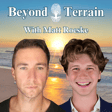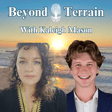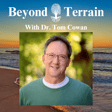
Dr. Julia Britz on Psych Med Tapering, Withdrawal, Side Effects of Meds, and More!
This week we are joined by Dr. Julia Britz. We began by hearing a little about Dr. Britz's journey, as she has a direct connection to her field. We then discussed the transparency in the psychiatric field. Next, we began our discussion on drug tapering and drug withdrawal, specifically regarding psychiatric drugs.
We covered the underlying premises, as well as some specific examples, including SSRIs. We also discussed various concepts surrounding withdrawal, such as long-term withdrawal effects. We discussed the roles of exercise, hormetic stress, herbology, and supplements in relation to tapers.
We also discussed a few issues pertaining to the diagnosticians, as well as the pharmaceutical companies. We also covered the importance of having the right match with a practitioner, as well as the person-centered approach.
Enjoy the episode!
Learn from me
https://www.instagram.com/beyond.terrain/
https://linktr.ee/beyondterrain
Support the vision
Share!!!
BCH: bitcoincash:qq7eq276ylanluc5e39unrqshkvs9xsemg07yxezf7
ETH: beyondterrain.eth
BTC: bc1qqwc470ktgj3l4myqxr5hq67rnlqys0qm98u6f0
https://www.buymeacoffee.com/beyondterrain
How to support and Learn from Dr. Britz








![DNA Doesn't Exist & Genomic Nonsense with Dr. Jerneja Tomsic [Part 2] image](https://media.zencastr.com/cdn-cgi/image/width=112,quality=85/image-files/652933f3a749dc383eb375de/ce5a5fd9-98c9-44fe-9b4b-3d0cd5abcf29.png)









